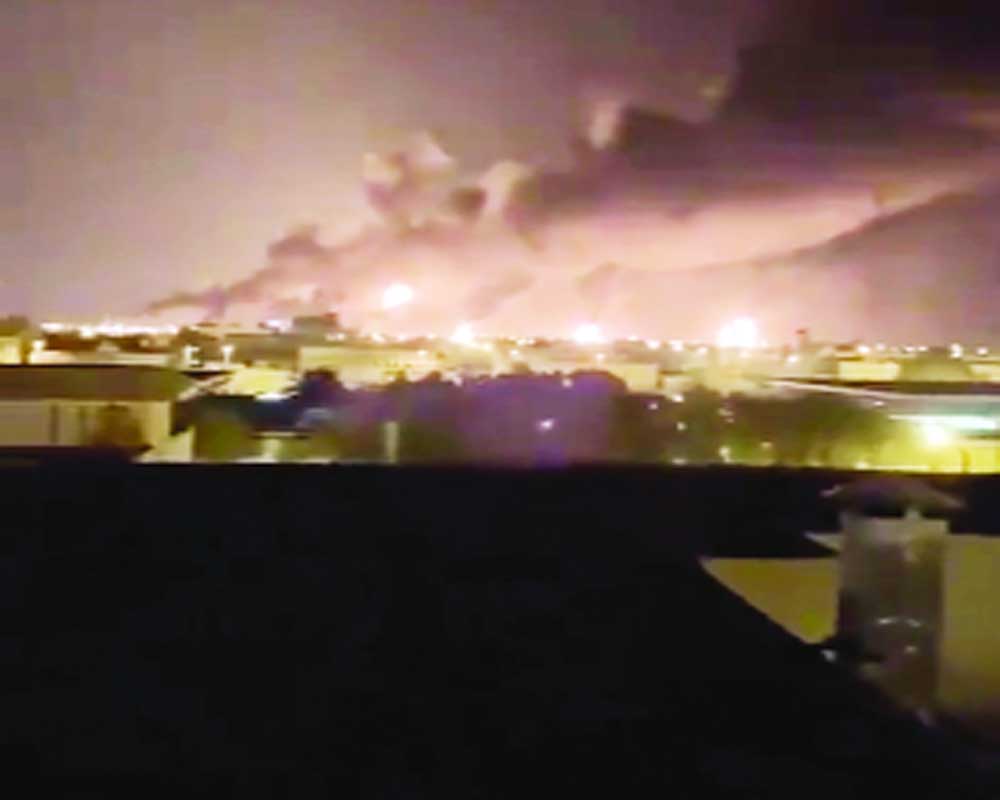A drone and missile attack on the Abqaiq oil processing facility should send alarm bells ringing across the world
The shock of the drone and missile attack on the Abqaiq oil processing facility should worry everyone. Not only did it take offline half of Saudi Arabian oil production, the development highlights how critical infrastructure facilities can be targetted by drones from an “unknown” entity. Of course, now the spectre of another conflagration in the Persian Gulf looms large, especially after US President Donald Trump said his nation is “locked and loaded” and attributed the explosions to Iran’s nefarious designs on American interests. If this escalates, oil prices might rise dramatically even though the cooling global economy will possibly temper that. Although Saudi firms have affirmed that there would not be any shortage of supply, repairing reservoirs might take time and India would have to look for an alternative then. Early estimates show that around six per cent of global supplies could be hit. We have imported 19 per cent crude and disruptions could impact our volatile economy.
There are major lessons that India should take from all this. The first relates to protecting critical defence and infrastructural sites from drone attacks. As we learnt when the Gatwick Airport in London was shut down for almost a week, thanks to drones overflying the runways, precision strikes do not need to be fiery and violent to damage the economy. Nations will need to figure out how they will be able to combat drones which can do disproportionate economic damage. Analysing the images from Saudi Arabia, repairs will cost millions of dollars while the attack may have taken just a few thousand dollars to execute. It is also extremely puzzling why Saudi Arabia allowed one of its most critical infrastructure sites to be so poorly guarded and vulnerable. However, just as the Saudis will learn from this lapse, so should India. We must also be prepared for the worst possible outcome in the Middle-East, a war. The clinical nature of the attack makes it impossible to have been conducted by a “non-state” actor (to use Pakistan’s favourite term). Any conflict in the region will send oil prices soaring, something the Indian economy, mismanaged to the point of disaster, does not need right now. However, citizens should be made aware of the consequences of such a possibility. This attack should also speed up development of alternative fuels and energy sources, which may not be a bad thing indeed. This is by far the worst shock to global supplies than when Saddam Hussein invaded Kuwait in 1990 and the Islamic Revolution in Iran in 1979.


























